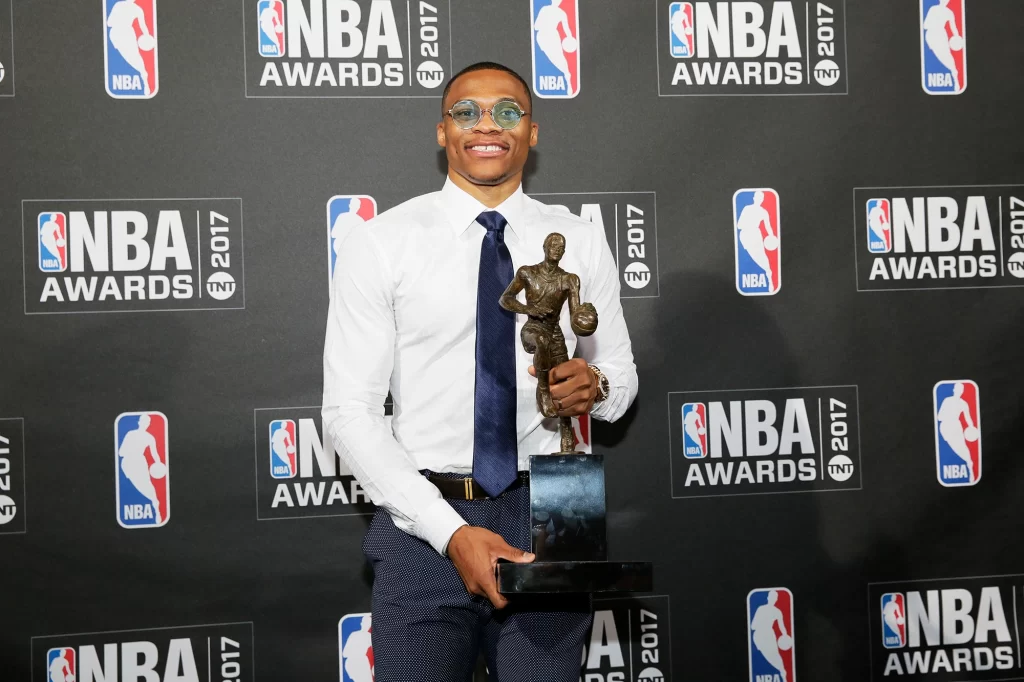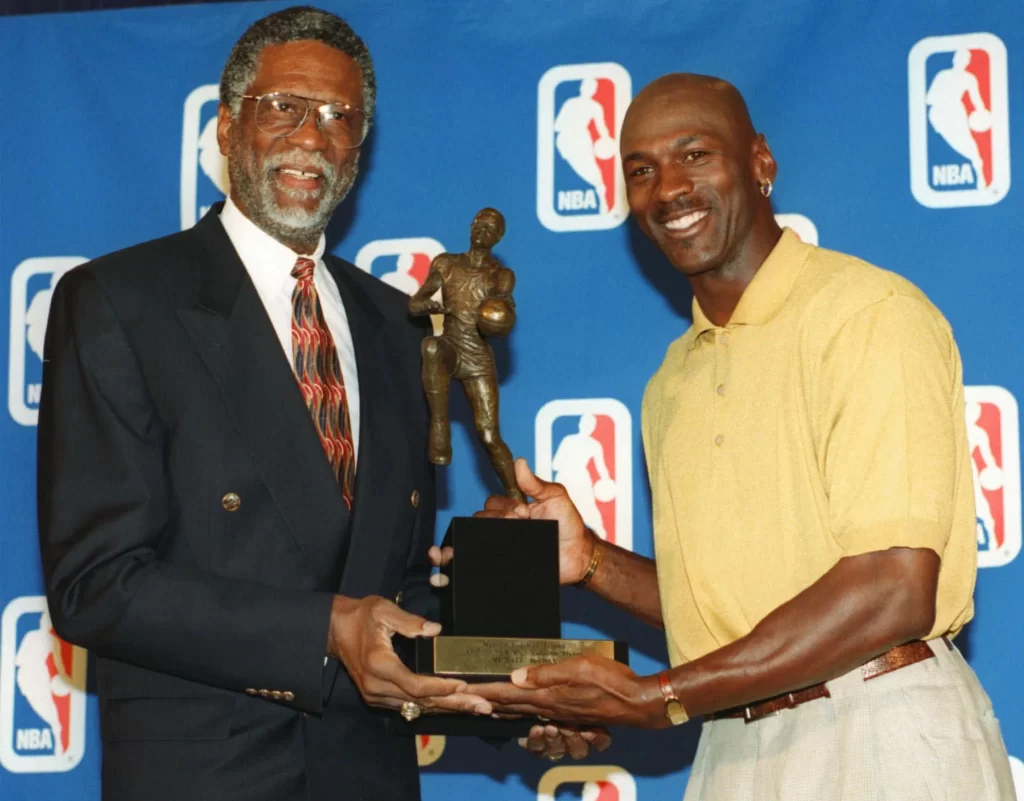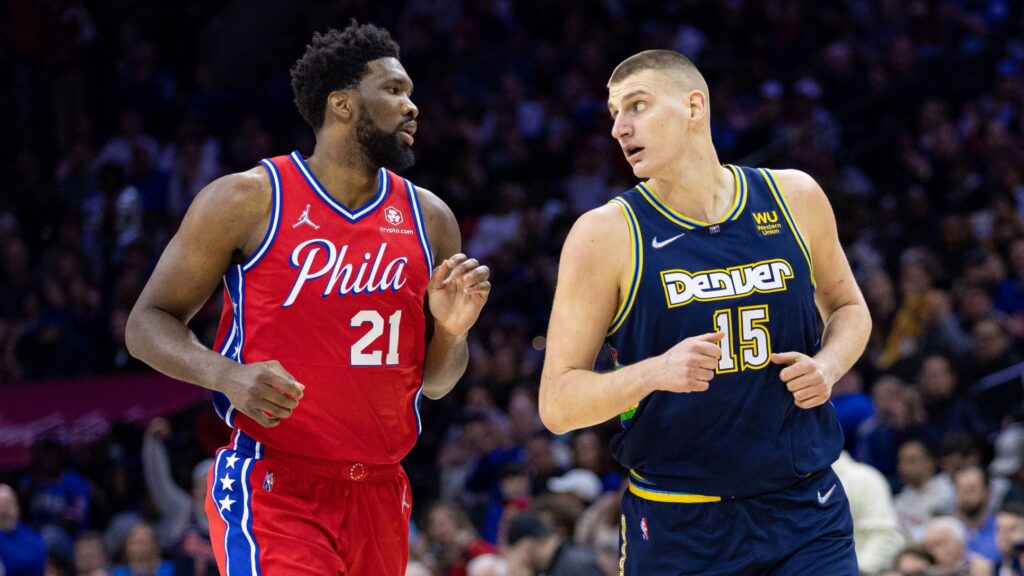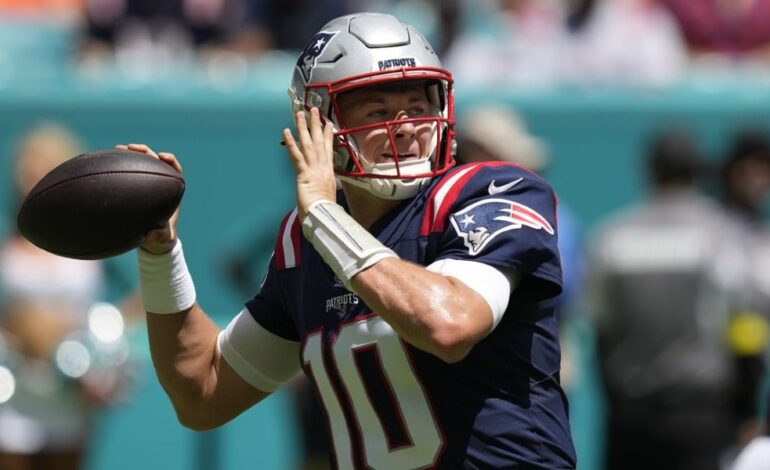The NBA’s Most Valuable Player Award is one of the most prestigious individual awards given in basketball. Starting this year, the MVP Award will be named the Michael Jordan Trophy to honor five-time NBA MVP Michael Jordan. But how ridiculous is it that the NBA has not set criteria for candidate selection? Every year is spent redefining the word “valuable” and letting the media set the narrative for each candidate. I have a great idea. We will select our own NBA MVP criteria.
The Problem

Humans select these awards, and humans are fallible. The two most common problems human voters fall prey to are narratives and voter fatigue. While typically, an individual award bears no value in the grand scheme of championship glory, the NBA ties award winners to contract incentives and NBA history.
Media Narratives
Narratives are media storylines that generate a candidate’s momentum. For instance, in the 2016-2017 season, Russell Westbrook became the first player in decades to average a triple-double for the season (Oscar Robertson in 1962). Westbrook won primarily due to the narrative that we haven’t seen a triple-double average in a long time. His Oklahoma City Thunder were sixth in the Western Conference that year. People forget that when Oscar Robertson won his only MVP in 1964, he did not average a triple-double that season. But Robertson did average a career-high in points and led his team to the second-best record in the league. Westbrook averaged a triple-double in three additional seasons but has never come close to repeating as MVP.
Voter Fatigue
Voter fatigue is the belief that voters are tired of choosing the same player to win yearly. Despite a player having a statistically better season than the MVP year before, he can still lose. Larry Bird is the only player in NBA history to win the MVP three times in a row. Although it’s difficult to analyze how voter fatigue has affected voting historically, new winners usually do not result from the incumbent having a lousy season.
All of these issues fall on the NBA. You cannot have the media setting the narrative and selecting the winners. You cannot allow boredom to dictate selections because some contract incentives are based on awards. Without NBA MVP criteria, you dampen the legacies of all-time greats in favor of daily debate and banter. The awards matter! Making stars out of social media personalities and NBA commentators debating every year does not matter.
NBA MVP Criteria

Before we get started, let’s make some caveats. We will vote as if this is a regular season award for the current NBA season. No rewarding/punishing players for last season’s successes or failures. Also, no punishing players for early playoff exits or rewarding them for wild playoff runs. The final caveat will be disregarding the saying “makes teammates better” due to subjectivity. I don’t want the success or failure of Smush Parker and Kwame Brown to determine if Kobe Bryant gets the MVP award.
Criteria 1 – Winning
We will set the bar at 50 wins. Only four MVP winners in the last 40 years had a team record of under 50 wins. This includes a lockout season. The Dallas Mavericks without Luka Doncic may have won less than their current 37 wins, but how are 37 wins valuable to the team if they threaten to miss the playoffs? Similarly, taking Jimmy Butler off the Miami Heat roster might send the Heat to the bottom of the standings. Having Butler, however, makes the Heat a 42-win team in 2023. Even with Butler, the Heat still can’t avoid the cutoff line for the NBA play-in tournament.
Criteria 2 – Availability
Players can only qualify for MVP if they played 80 percent of the season. That is 65 games out of a possible 82 for a typical NBA season. If your team meets the winning in Criteria 1, despite you missing more than 20 percent of the games, you cannot be the most valuable player in the league. The NBA reportedly agrees with the availability criteria for the next Collective Bargaining Agreement.
This, in turn, will curb the “load management” technique that leads to some stars becoming healthy scratches on game day. Availability criteria could pressure the players to return sooner from legitimate injuries. However, players on teams in title contention already have that pressure. Nothing changes.
Discipline on and off the court is another byproduct of tying availability to award candidacy. For instance, the recent suspension of Ja Morant would negate his ability to reach the required number of games. Suspensions due to technical fouls could hurt the future candidacy of players like the Boston Celtics’ Jayson Tatum and the Sacramento Kings’ De’Aaron Fox.
Criteria 3- Wins and Stats in Head-to-Head
The marquee matchups make the NBA a valuable commodity in the eyes of its consumers. We should give weight to the highlights and stats from head-to-head matchups against other MVP candidates.
Criteria 4- Statistical Anomaly
This characteristic is reserved for a player who does something he has not done before or something that rarely happens in NBA history. The player may have set the record for most points in a season in franchise history. Perhaps he leads the league in rebounding for the first time—things like that.
NBA MVP Candidates

The criteria are in order of importance, and the statistically best player on each team gets the candidate nod. We could always weigh the criteria with percentage values, but nobody wants to turn the Michael Jordan Trophy into a math problem. The eye test and some essential criteria are all you need. Based on the above NBA MVP criteria, the only players that qualify for the NBA MVP race this year are Nikola Jokic (Denver Nuggets), Joel Embiid (Philadelphia 76ers), Donovan Mitchell (Cleveland Cavaliers), Domantas Sabonis (Sacramento Kings), Jayson Tatum (Boston Celtics), and Giannis Antetokounmpo (Milwaukee Bucks).
Whom Do You Have for Your 2022-2023 NBA MVP?
Who is this years NBA MVP? #NBA #NBAMVP
— Belly Up Sports (@BellyUpSports) March 29, 2023
Embiid leads the league in points per game for the second straight season. The last 76er center with consecutive scoring records was Wilt Chamberlain (seven seasons in a row) almost 60 years ago.
Jokic is 0.1 assists shy of averaging a triple-double for the season. He would be the only center ever to accomplish that feat.
Antetokounmpo’s Milwaukee Bucks have the most wins in the league and may reach 60 wins. In the last 40 years, the average number of wins for the team with the MVP is 60 (not including lockout seasons).
Jayson Tatum set the points record (55 points) in the NBA All-Star game. He is having the best statistical season of his career.
No one expected the Cavaliers and Kings to play so well this year.
Follow me on Twitter for my MVP pick, plus other NBA news and articles. Please also follow Belly Up Sports on Twitter for the latest sports content.







2 Comments
Two questions: 1. Do you think there should be limits to how many times a player is chosen? 2. Do you think there should be accolades for MVP nominations as well? As much as a player may deserve it back to back nobody wants to see the same guy winning over and over. Not saying they don’t deserve it, it’s just not something people want to see.
Thank you for reading! Nah, I don’t think there should be a limit on how many times a player is chosen for MVP. Realistically speaking, an all-time great player should win the award numerous times. We cannot give credit for nominations because voting is based on a point system. 1st place vote is worth 10 points. 2nd is worth 7 points and it goes down from there. So technically, if you got a single vote, you were nominated. Other accolades, such as All-NBA team selection, can cover the value of a player’s impact that season.